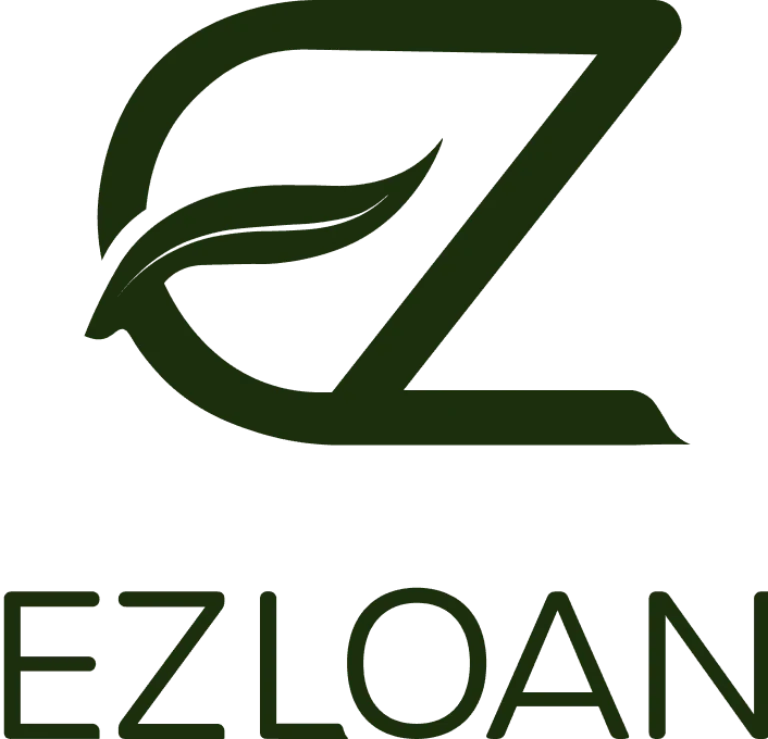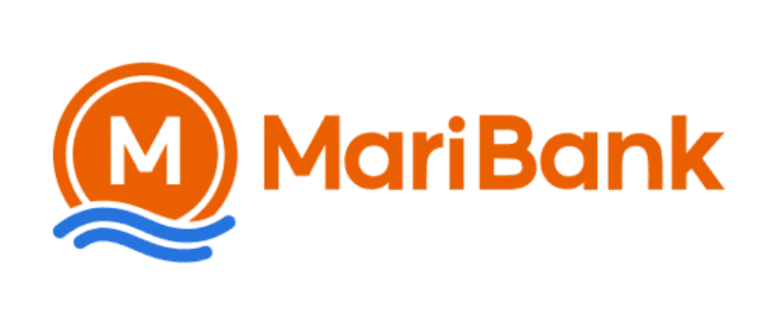The Best Secured Loans to Consider in 2026
Updated: 1 Jan 2026
The information on this page is for educational and informational purposes only and should not be considered financial or investment advice. While we review and compare financial products to help you find the best options, we do not provide personalised recommendations or investment advisory services. Always do your own research or consult a licensed financial professional before making any financial decisions.
Best Personal Loans in Singapore
DBS Share Financing
-
EIR: Varies
-
Annual flat rate: From 4.5%
-
Min. loan amount: N/A
-
Term length: Varies
Qualifications
-
Must be at least 21 years of age
-
Must possess a DBS/POSB eMCA account for loan disbursement
-
Must not be a US Tax person, Australian resident, or European Economic Area (EEA) resident
Fees and charges
-
Interest rates: 4.5% p.a. for SGD funds
-
CDP shares transfers: S$10 per counter per transfer
-
CDP sub account maintenance fees:
-
0.0025% p.a. from S$0–20 million
-
0.0015% p.a. from next S$20 million and above
-
0.0010% p.a. for remaining values above S$1 billion
-
Transaction confirmation fee: S$5 per transaction
-
Late trade settlement fee: S$25 per transaction
-
Transfer handling fee for SG shares: S$20 per counter per transfer
-
Transfer handling fee for foreign shares: S$50 per counter per transfer
Pros & Cons
Pros
Competitive interest rates for SGD, HKD, and USD
Flexible and secured loan option, enhancing investment power
Ability to finance up to 70% of eligible shares or ETFs
Cons
Loan is secured against your investments, which carries an element of risk
You will need a DBS Vickers Online Trading account for access to settlement options in the HK and US markets
Trading settlement is only currently only available in SGD
Lending Bee Home Mortgage Loan/Refinancing
-
EIR: Up to 60.1% p.a.
-
Annual flat rate: From 12.68-60.1%
-
Min. loan amount: N/A
-
Term length: 15 years or more
Qualifications
-
You need to be at least 21 years old
-
Open to Singapore Citizens, Permanent Residents and foreigners with valid work permits
-
You must be either a salaried worker or self-employed
-
You need to possess ample equity in a property
Fees and charges
-
No early repayment fees apply
-
Other applicable fees, such as a fee amounting to 10% of the principal of the loan may apply, when the loan is granted
Pros & Cons
Pros
Get your loan approved in just 2 weeks
Individuals with bad credit scores may still apply, as long as they have ample equity in their property
No early repayment fees
Tenures of 15 years and above are available for borrowers seeking longer term loans
No borrowing limit
Cons
Information on applicable fees and interest rates are only available upon making an appointment

Borrowers with bad credit deserve loans too
Explore interest rates and terms personal loans from alternative lenders that are open to borrowers with bad credit.
HSBC Wealth Lending
-
EIR: Varies (Interest rates are calculated daily)
-
Annual flat rate: Min. charge of $10 (in the loan currency) applies
-
Min. loan amount: N/A
-
Term length: Flexible
Qualifications
-
Only HSBC Premier customers may apply
-
You must either be a resident of Singapore or another eligible country, as determined by HSBC
-
You need a valid mobile device which can receive margin calls and post forced sale notifications via SMS
-
You must not possess any secured overdrafts, investment financing, or other wealth portfolio lending facilities
-
Additional eligibility criteria apply for Lombard Lending facility borrowers
Fees and charges
-
Interest is calculated on a daily basis
-
A minimum interest charge of $10 per month applies (in the loan currency)
-
No interest is charged if the facility is not utilised
Pros & Cons
Pros
Access to funds without liquidating existing investments
Wide range of eligible assets as collateral
Flexible repayment options without minimum drawdowns or monthly repayments
Ability to leverage investments (Lombard Lending)
Borrowing in major currencies such as SGD, USD, GBP, EUR, HKD, and more
Cons
Interest rates are not fixed are subject to change daily, which introduces volatility
The leverage of the product can work against you, resulting in losses that exceed those of a direct investment
You may be asked to repay HSBC at short notice, or be forced to sell your investments during adverse market conditions
>> MORE: 6 Top Cash Advance Apps in 2026
DBS Car Loan
-
EIR: Varies (Interest rates are calculated daily)
-
Annual flat rate: Varies
-
Min. loan amount: Varies
-
Term length: Up to 7 years
Qualifications
-
Minimum age of 21 years old
-
Minimum monthly income: S$2,000 (Singapore Citizens/PRs), S$4,000 (Foreigners)
-
Must meet Total Debt Servicing Ratio (TDSR) requirements
-
Loan-to-Value (LTV) limits based on Open Market Value (OMV):
-
≤ S$20,000 OMV: 70% of purchase/valuation price (whichever is lower).
-
> S$20,000 OMV: 60% of purchase/valuation price (whichever is lower).
Fees and charges
-
Each DBS Car Loan is personalised, according to your car’s OMV as well as your personal financial situation
-
DBS recommends using their Car Loan Calculator to determine the maximum amount you can borrow
Pros & Cons
Pros
Hassle-free application via digibank and/or Singpass
Up to 7 years loan tenure
DBS Green Car Loan options available for both used and new green cars
Cons
Loan amount is capped based on OMV
An Access Code from LTA Vehicle-Related Digital Services will be required for the bank to validate car ownership details
You car will be used as collateral in this loan
Discover debt consolidation loans from reputable lenders
We review Debt Consolidation Plans for streamlining your monthly debt repayments.
UOB HP50 Car Loan
-
EIR: Varies (Interest rates are calculated daily)
-
Annual flat rate: Varies
-
Min. loan amount: Varies
-
Term length: Up to 5 years
Qualifications
-
This loan is only for financing the purchase of new cars
-
You need to be 21 years of age or above
-
Only Singapore Citizens or Permanent Residents may apply
-
Loan up to 70% of the purchase price or the Bank's valuation, whichever is lower
Fees and charges
-
Each HP50 Car Loan is personalised, according to your car’s OMV as well as your personal financial situation
-
UOB recommends using their Car Loan Calculator to determine the maximum amount you can borrow
Pros & Cons
Pros
Skip providing additional documents by applying online using MyInfo through your car dealer
Up to 5 years loan tenure
Trade in your car at the end of your loan tenure at the prevailing market price
Enter into a sell and lease back scheme with your dealer at the end of your loan tenure
Or simply redeem your vehicle by paying the final instalment
Cons
Loan amount is capped based on OMV
You may only use this loan for new vehicles
You car will be used as collateral in this loan
Things you should know about secured personal loans
A secured personal loan is a type of loan that requires you to pledge an asset as collateral, such as a vehicle or property you own. This collateral acts as security for the lender, reducing their risk. If you fail to repay the loan, the lender can seize the collateral to recover the funds.
These loans often have easier approval criteria, with interest rates ranging from 5-20% per annum, depending on the asset and lender.
Online loans from reputable lenders
From digital banks to established financial institutions, explore loans you can apply for from the comfort of your home.
How do secured loans work?
In Singapore, applying for a secured loan involves submitting documents and having the collateral you are pledging appraised, whether it's a vehicle or property. The lender assesses both your creditworthiness and the asset's value. Higher collateral value typically translates to a larger loan amount and better approval odds. Once approved, the funds are disbursed, with the asset serving as security.
Loan repayments in Singapore usually involve fixed monthly installments, with interest calculated on the outstanding balance, and with varying loan tenures. If you default, the lender has the legal right to seize your pledged asset, which will negatively impact your credit rating with the Credit Bureau Singapore (CBS).
Alternative types of secured loans
Housing loans
In Singapore, housing loans, or mortgages, are essential for purchasing property, whether it's an HDB flat or private condominium. Lenders assess loan-to-value ratios, which impact the initial down payment, with the Singapore Overnight Rate Average (SORA) serving as the underlying benchmark for fixed or floating interest rates. Tenure options are typically long-term, allowing homeowners to spread payments over decades.
Vehicle loans
Loan amounts are often tied to the Open Market Value (OMV) of the vehicle, and interest rates influenced by prevailing market conditions. Repayment periods are typically shorter compared to housing loans, reflecting the vehicle's depreciation, which is tied to the Certificate of Entitlement's (COE) validity period of 10 years.
Business loans
Secured business loans in Singapore enable entrepreneurs to leverage business assets as collateral for financing business operations or expansion. Eligibility criteria differ based on the lender and the type of business, and loan amounts are determined by the asset's valuation. Loan terms are tailored to the business's needs, with factors like cash flow and revenue projections taken into consideration.
What are the pros and cons of secured loans?
|
Pros |
Cons |
|
Lower interest rates. Higher borrowing limits. Potential for longer repayment terms. |
Risk of losing collateral. Possible requirement for asset appraisal. Longer approval processes. |
The pros
Lower interest rates: Because secured loans are backed by collateral, lenders in Singapore perceive them as less risky, often resulting in lower interest rates compared to unsecured loans.
Higher borrowing limits: The amount you can borrow is often tied to the value of your collateral, potentially allowing you to access larger loan amounts compared to unsecured options in Singapore.
Potential for longer repayment terms: Secured loans in Singapore may offer more extended repayment periods, making monthly payments more manageable.
The cons
Risk of losing collateral: The primary risk is that if you're unable to repay the loan, the lender has the legal right to seize your pledged asset, such as your car or property.
Asset appraisal: Lenders in Singapore will typically require an appraisal of the collateral to determine its value, which can incur additional costs.
Longer approval process: Due to the need for collateral assessment, the approval process for secured loans in Singapore can sometimes be longer compared to unsecured loans.
Where can you get a secured personal loan
Banks: Some major banks in Singapore offer secured personal loans, which may be backed by assets such as vehicles or shares. Compare their loan offerings, considering interest rates, loan terms and eligibility criteria to find the best fit for your needs.
Licensed moneylenders: Licensed moneylenders provide alternative sources for secured loans, particularly for individuals who may not qualify for traditional bank loans. It's crucial to understand the legal framework and protections in place for borrowers when considering this option.
Online platforms: Several digital lending platforms in Singapore facilitate secured loan applications, offering a convenient and user-friendly experience. These platforms often help borrowers find reputable and vetted lenders with terms that are suited for their needs.
Many lenders also give you the option of pre-qualifying, to assess your rate on an unsecured loan without impacting your credit score.
Enjoy favourable interest rates with this loan
Discover how you can use property as collateral to secure loans with better interest rates
How can you get a secured loan
Here are the steps to obtain a secured loan:
-
Loan enquiry: Start by contacting potential lenders in Singapore, such as banks or financial institutions. Inquire about the different types of secured loans they offer, including the specific requirements, accepted forms of collateral (e.g., fixed deposit, property), and the loan terms. Understanding the various options available will help you make an informed decision.
-
Assess your budget: Thoroughly review your current cash flow and financial situation. Utilise any personal loan calculators available on your loan provider's website to estimate key details such as the Annual Percentage Rate (APR), the maximum loan amount you qualify for and the corresponding repayment terms. This step is crucial in ensuring you can comfortably manage the loan repayments.
-
Select a lender: Carefully compare the secured loan options available in Singapore. Consider factors such as the types of collateral accepted by each lender, their interest rates (both the annual flat rate and the Effective Interest Rate), any associated fees, and the overall reputation of the lender.
-
Gather all required documents: Prepare the necessary documents to expedite the loan application process. Most lenders in Singapore will typically require the following:
-
A copy of your NRIC or Passport
-
Proof of income (recent payslips, CPF statements, or Income Tax Notice of Assessments)
-
Collateral documents (car title, property deed, or investment statements, depending on the asset used as security).
-
Proof of residence (utility bill or rental agreement)
-
Employment details (Letter of Appointment or work permit, if applicable)
-
-
Loan application: Once you've chosen a lender and gathered all the required documents, you can proceed with the loan application. This can often be done online or in person at the lender's branch. Be prepared for a collateral assessment, where the lender will arrange for the evaluation of the asset you're pledging as security.
Suggestions to consider when applying for a secured loan with bad credit
Securing a loan with bad credit requires careful preparation and understanding of your financial situation. By following these suggestions, you can improve your chances of approval and secure a loan that fits your needs:
-
Assess your debts and credit: Check your Credit Bureau Singapore (CBS) reports for any delinquencies or errors that could affect your loan application. Identify actionable ways to improve your credit score before applying. A credit report will set you back S$8, unless you have recently been approved or rejected by a CBS member. You'll have 30 days to submit your approval/rejection letter to CBS for a complimentary credit report from the date your letter was issued.
-
Assess your finances: Review all sources of income, including any non-employment income such as rental income, to provide a comprehensive financial picture to lenders. Calculate your debt-to-income (DTI) ratio to understand your current financial standing. If your DTI is high, consider paying off existing debts to improve your eligibility for a secured loan.
-
Assess your collateral value: Determine the estimated value of your collateral to understand the potential loan amount you can secure. Review balances and past statements if using financial assets as collateral. For car valuations, utilise online car value calculators specific to the Singaporean market.
Alternative funding options to secured personal loans
While secured personal loans offer access to funds by leveraging assets, Singaporeans have other avenues for financial needs. The following alternatives can provide flexibility without the risks of losing collateral.
Alternative options for bad credit
-
Unsecured loans for bad credit: Before opting for a secured loan, it's advisable to check your eligibility for unsecured loans, as they don't require collateral. Some licensed moneylenders may offer unsecured loan options tailored to borrowers with bad credit, often with flexible repayment terms.
-
‘Buy Now, Pay Later’ options: In Singapore, Buy Now, Pay Later (BNPL) services are increasingly available through various retailers, offering the convenience of instalment payments without the need for a traditional credit check. This can be a useful alternative for short-term financing of purchases.
-
Loans from family: Borrowing from family or friends can be a viable option in Singapore, potentially offering interest-free or low-interest funding. However, it's essential to establish clear terms and conditions to maintain healthy relationships.
-
Alternative ways to secure money: To supplement income, Singaporeans can explore freelancing, part-time work or gig economy jobs with platforms like Grab, Foodpanda, Shopee Live and Upwork. Additionally, leveraging government training grants, such as SkillsFuture Credits, can help upgrade skills and open doors to better job opportunities.
Alternatives that can build credit
-
Secured credit cards: In Singapore, a secured credit card requires a fixed deposit as collateral, with the credit limit typically matching the deposit amount. Generally speaking, this usually works out to be around S$10,000 with borrowers' credit card limits matching 80-90% of the collateral sum. These cards are offered by major banks like DBS, Standard Chartered Bank, Citibank and others.
-
Credit building loans: While traditional credit-builder loans are not commonly found in Singapore, some licensed moneylenders offer small, secured loans that can contribute to building a credit history. For those looking for alternatives, the POSB Credit Limit Review and Debt Consolidation Plans can also be beneficial in improving one's credit standing with CBS, offering structured pathways to better financial health.
>> MORE: Best Loans for Emergency in Singapore 2026
Alternatives for emergencies
-
Government financial assistance schemes: For Singaporeans facing immediate financial hardship, the ComCare Short-to-Medium Term Assistance (SMTA) provides critical support for basic living expenses, including cash assistance and help with essential bills. Self-employed individuals experiencing income loss can turn to the Self-Employed Person Income Relief Scheme (SIRS) for temporary financial aid. Additionally, those struggling with home loan repayments can explore the CPF Flexi Housing Loan Scheme, which offers flexible repayment options to ease the financial burden.
-
Assistance with medical bills: To alleviate the stress of medical expenses, MediFund in Singapore assists low-income individuals with outstanding medical bills at public healthcare institutions, ensuring access to necessary treatment. Singaporeans can also utilise their MediSave accounts to cover eligible medical expenses, reducing the immediate financial strain. Furthermore, hospitals often offer instalment payment plans, allowing patients to manage their medical bills over an extended period, making healthcare more accessible.
Frequently asked questions about the best secured personal loans
Proof of income and ownership of the asset being used as collateral is essential. A good credit standing with Credit Bureau Singapore (CBS) will also help. Lenders will also appraise the asset's value to ensure it covers the loan amount.
Yes, secured loans can be easier to obtain in Singapore, especially for those with less-than-perfect credit, as the collateral reduces the lender's risk. However, the asset must meet the lender's valuation and criteria.
Yes, secured loans can be easier to obtain in Singapore, especially for those with less-than-perfect credit, as the collateral reduces the lender's risk. However, the asset must meet the lender's valuation and criteria.
Secured loans in Singapore often offer lower interest rates compared to unsecured loans due to the reduced risk for lenders. This can translate to lower monthly repayments for borrowers who can provide suitable collateral.
In Singapore, if you fail to repay a secured loan, the lender has the right to repossess and sell the collateral to recover the outstanding debt. This can include your vehicle, or shares held in a trading account.
Examples include car loans where the vehicle is the collateral, such as the UOB HP50 Car Loan, or shares financing, when your investment assets are held as collateral. DBS Share Financing is one such example of an investment assets loan.
Relevant articles
Best Unsecured Personal Loans in Singapore [March 2025]
Unsecured personal loans in Singapore offer a flexible financing option without the need for collateral. Your approval is based on your creditworthiness and financial situation. Let's explore the best unsecured personal loan options available in Singapore to help you make informed financial decisions.

















